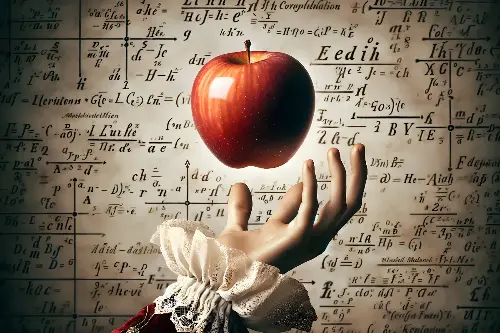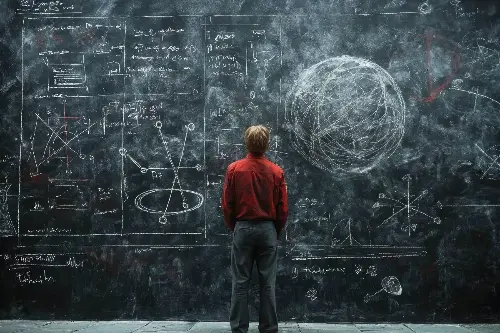
The Gravity of an Apple: Uncovering the Fact behind the Fall
The tale of Sir Isaac Newton and the apple that supposedly fell on his head is etched into the annals of scientific folklore. This quaint story symbolises a eureka moment that changed our understanding of the universe. But did an apple truly inspire the genius of Newton, and more importantly, how has the concept of gravity he formulated shaped our scientific endeavours?
The nexus of gravity and innovation The story goes that a young Isaac Newton was sitting under an apple tree at his family home of Woolsthorpe Manor when an apple fell, prompting him to contemplate the force that governs the motion of objects. Whether fruit-induced or not, Newton’s Universal Law of Gravitation was monumental. He proposed that every particle of matter in the universe attracts every other particle with a force directly proportional to the product of their masses and inversely proportional to the square of the distance between them.
The impact of Newton's discovery Newton's revelation on gravitation wasn't just another scientific theory—it was a cornerstone that fundamentally changed our outlook on the universe. His Principia Mathematica laid the groundwork for classical mechanics, influencing the likes of Euler, Lagrange, and Laplace. The omnipresence of gravity became the connecting dot across the cosmos, explaining phenomena from the fall of an apple to the orbit of the planets.
The Apple's Descent through Time
Centuries later, Eureka moments attributed to Newton’s apple persist in the quest to understand gravity. That force was the crux of Einstein's General Theory of Relativity. The iconic image of an apple in free fall remains ever-present in classrooms worldwide, symbolising the kernel of curiosity that leads to profound discovery.

Space, Time, and Gravitational Waves
Gravity's mysteries have only deepened with time. We've gone from understanding it as a force to conceptualising it as the curvature of spacetime itself. The recent detection of gravitational waves, ripples in the fabric of spacetime foretold by Einstein, has opened new avenues in astrophysics, confirming that massive objects like black holes and neutron stars warp the cosmos in their choreography.
The Universal Constant in an Ever-Changing Universe
Gravity has stayed constant while our comprehension of it has evolved. This fundamental force not only governs the motion of celestial objects but also becomes a critical variable in the architecture of bridges and buildings. It is central to space exploration and has been paramount in advances such as GPS technology, which relies on precise timing signals that account for gravitational effects on satellites.

Inspiring New Generations
Though the accuracy of the apple anecdote is subject to debate, it remains a powerful symbol. It reflects the simple yet profound idea that answers to complex questions can stem from everyday observations. This instils in budding scientists the belief that they, too, might stumble upon great discoveries in the simplicity of daily life. Modern educational systems emphasise inquiry-based learning rooted in observation and analysis, a testament to the Newtonian apple's lasting influence.
The Fruit that Keeps Giving The narrative of Newton's apple transcends the realms of mythology and science, encapsulating a broader truth about human curiosity and the quest for knowledge. While the specifics of the apple incident may be lost to history, its essence lives on, inspiring scientists to unravel the universe's secrets. The mythos of the falling apple thus serves as a metaphor for the gravity of thought that continues to propel science forward, shaping our understanding of the universe and our place within its vast expanse.
